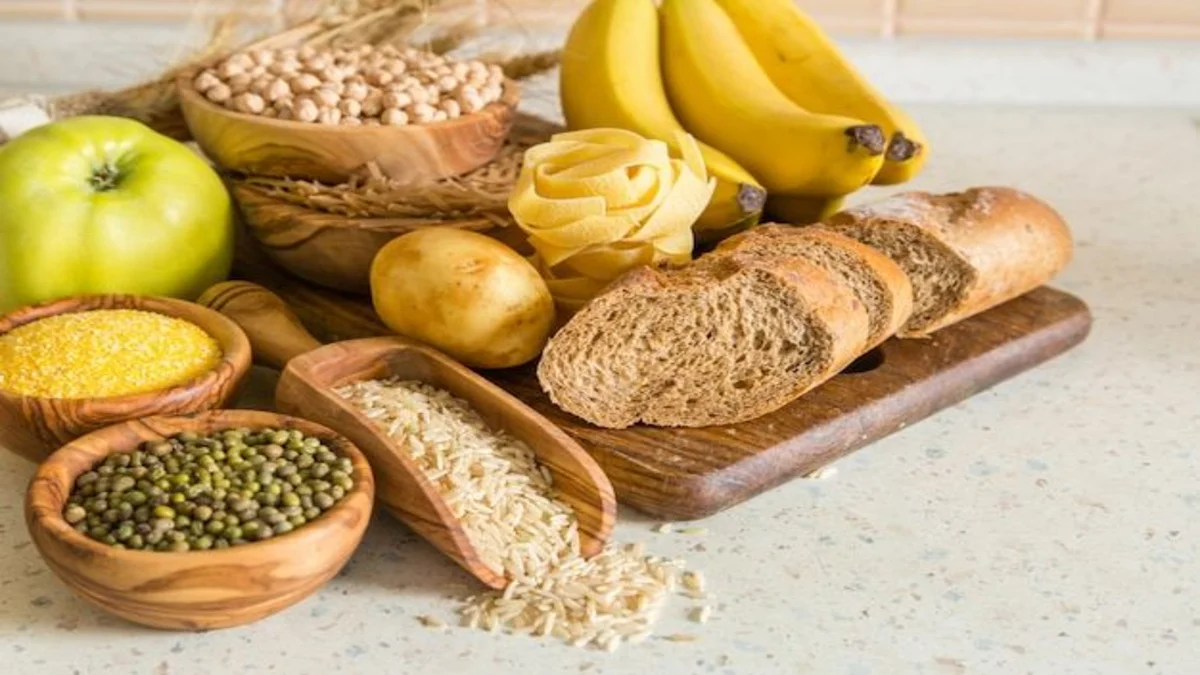Discover the amazing health benefits of cinnamon in this comprehensive spice spotlight. From reducing inflammation to improving heart health, cinnamon has it all!
Cinnamon is a spice derived from the bark of trees belonging to the Cinnamomum family. It has been used in traditional medicine for its powerful healing properties and aromatic scent. With its rich history and diverse uses, cinnamon has become a staple ingredient in kitchens around the world.
What Is Cinnamon?
Cinnamon is a spice derived from specific types of trees. For thousands of years, traditional medicine has employed extracts from the cinnamon tree’s bark, leaves, flowers, fruits, and roots. It is used in cooking and baking, and it is included in a variety of meals.
Cinnamon profile nutrition

| Nutrient (1) | Amount per 100 grams |
|---|---|
| Calories | 247 kcal |
| Protein | 3.99 g |
| Fat | 1.24 g |
| Carbohydrates | 80.59 g |
| Fiber | 53.1 g |
| Sugars | 2.17 g |
| Calcium | 1002 mg |
| Iron | 8.32 mg |
| Magnesium | 60 mg |
| Phosphorus | 64 mg |
| Potassium | 431 mg |
| Sodium | 10 mg |
| Zinc | 1.83 mg |
| Vitamin C | 3.8 mg |
| Vitamin B6 | 0.158 mg |
| Vitamin A | 15 µg |
| Vitamin E | 2.32 mg |
Types of Cinnamon
There are four major varieties of cinnamon. The darker-colored cassia cinnamon is the most often offered in the United States. It is grown throughout Southeast Asia. Ceylon cinnamon, often called genuine cinnamon, is widely utilized in other nations.
The cinnamon you buy at the shop could be one of two varieties: Ceylon or cassia, or a combination of the two. Ceylon is easier to grind, but it may not offer the same health benefits.
Benefits of Cinnamon
1. Anti-inflammation
An efficient anti-inflammatory is cinnamon. After testing the phytochemicals in cinnamon, researchers found that it had anti-inflammatory and antioxidant properties. In a promising investigation, certain chemicals found in cinnamon were also found to target free radicals.
2. Cancer prevention
The development of new blood vessels to nourish malignancies is known as angiogenesis. A crucial element of cancer treatment is inhibiting angiogenesis. According to a study, cinnamon can halt or slow down cellular signaling, angiogenesis, and cell proliferation. This implies that using cinnamon as a treatment or preventative for cancer may be possible.
3. Antibiotic properties
Cinnamaldehyde is the chemical that gives cinnamon its unique smell and aroma. This phytochemical has demonstrated broad-spectrum antibacterial properties as well. A variety of bacteria and viruses, such as staphylococcus, E. coli, salmonella, and candida, were tested against cinnamon aldehyde. It was discovered by researchers to be capable of stopping the growth of these bacteria.
4. Protection from oxidative stress
There are several antioxidants in cinnamon, including polyphenols. They may aid in protecting your body from oxidative harm. Because of its potent antioxidants, cinnamon can occasionally be used as a natural food preservative.
5. protect against heart disease

The world’s biggest cause of death, heart disease, has been associated with a lower risk of heart disease when cinnamon is consumed.
One review found that individuals with metabolic disorders who were supplemented with at least 1.5 grams (g), or around 3/4 of a teaspoon (tsp), of cinnamon daily saw reductions in their blood sugar, triglyceride, and total cholesterol levels.
Cinnamon was shown to lower total cholesterol and triglyceride levels, two more heart disease risk factors, in an analysis of 13 research.
Cinnamon has also been demonstrated to lower blood pressure when taken regularly for a minimum of eight weeks.
All of these things working together could lower your chance of developing heart disease.
6. Manage weight loss

It has been demonstrated that cinnamon can lessen some of the negative consequences of eating foods high in fat. This may support a comprehensive weight-loss strategy. In the end, your body may lose weight as a result of its impact on blood glucose levels.
Cinnamon’s antibacterial and anti-inflammatory qualities can aid weight loss efforts further by supporting a healthy body that will improve digestion.
It’s crucial to understand that cinnamon by itself won’t cause sustained weight loss. However, adding cinnamon to your nutritious diet and workout regimen may help assist you in reaching your weight loss objectives. There are 1.6 grams of fiber in one teaspoon of cinnamon, so it can help you meet your daily fiber intake and feel fuller after meals.
Cinnamon Side Effects
- Irritation and allergies. Generally, cinnamon has no negative consequences. However, frequent use could irritate your lips and mouth, leading to ulcers. It causes allergies in certain persons. If you apply it to your skin, it could irritate and cause redness. (2)
- Toxicity. Consuming large amounts of cassia cinnamon may be harmful, particularly if you have liver issues. Although the amount of coumarin that some cinnamon products contain is so minimal that it probably won’t cause any difficulties, the substance can cause problems with the liver. Pregnant, lactating, and children should not use cinnamon as a treatment due to the lack of data supporting its safety. (3)
- Lower blood sugar. If you take cinnamon supplements and have diabetes, you may need to modify your treatment plan because it may have an impact on your blood sugar.
- Interactions. Consult your doctor before beginning to use supplements containing cinnamon if you take any medications daily. Antibiotics, diabetes medications, blood thinners, heart medications, and other medications may be affected. (4)
Summary
A terrific way to enhance the taste of a variety of dishes and drinks is by using cinnamon. Still, the spice offers a host of health advantages. Large doses of it can be harmful for some people, but overall, there are rarely any significant negative effects.
FAQs
What happens if I drink cinnamon every day?
Does cinnamon burn belly fat?
When not to eat cinnamon?
Is cinnamon safe for kidneys?
References
- https://www.health.harvard.edu/blog/spice-up-your-holidays-with-brain-healthy-seasonings-2016120710734 ↩︎
- https://www.ncbi.nlm.nih.gov/pmc/articles/PMC4541332/ ↩︎
- https://pubmed.ncbi.nlm.nih.gov/35115937/ ↩︎
- https://pubmed.ncbi.nlm.nih.gov/32788161/ ↩︎





